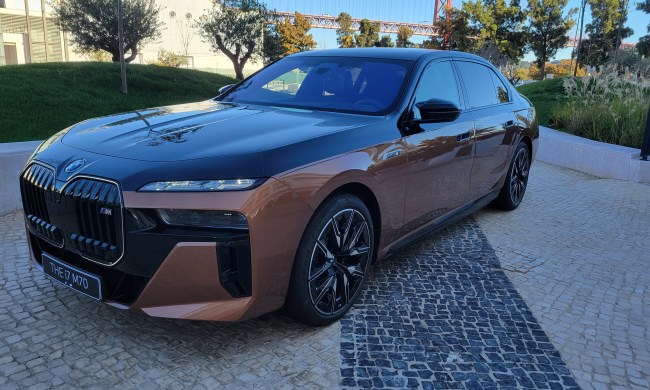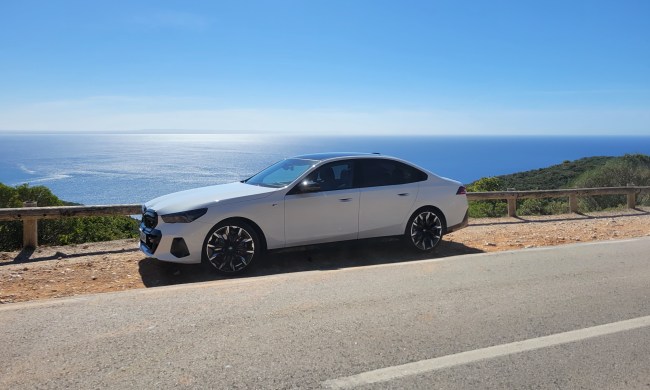If you’re tired of plugging in your electric vehicle (EV) or hybrid like a commoner, BMW has a completely wireless solution for you — if you live in California and are accepted into the company’s pilot program, that is. Those caveats aside, wireless charging has long been promised and teased for the increasing numbers of electric cars, and this program is a welcome step toward making wireless charging a reality for all EV owners.
This is the program’s first expansion outside of Germany. Available on the BMW 530e plug-in hybrid, the system includes a wireless charging ground pad and a car pad affixed to the underside of the vehicle. The system then wirelessly charges the 530e over a gap of about 3 inches, with a charging power of 3.2KW. Specifically, the ground pad creates a magnetic field, which induces an electrical current inside the car pad. This would charge the onboard batteries fully in approximately 3.5 hours. The electrical efficiency of the wireless charging system is 85 percent, so your electrical bill will include electrons that you never got to enjoy. If you’re worried about frying your cat, the ground fixture is constantly monitoring for foreign matter and switches off if anything is detected.
The BMW pilot program is available to 200 qualifying applicants who live in California and start a new lease on a 530e plug-in hybrid. To qualify for the program, you must qualify for the 530e lease, as well as fill out two surveys to determine your and your home’s suitability for the program. The first questionnaire, available here, determines whether you own your home or need homeowners association (HOA) approval to do the installation required, and if there is a BMW dealer close enough to your address. Apparently, renters and HOA neighborhoods will not be favored by BMW.
The second survey (available here) helps determine if your home, garage, and electric grid are suitable for the charging pad installation. The company is asking participants to have an enclosed garage for the charging pad, even though they state that the charging pad can be installed outdoors. It is likely that the company is simply attempting to limit variables during this first U.S. test. Installation, maintenance, and removal of the wireless charging ground pad is free to participants and completely covered by BMW.
If you are approved for the program, you can take your confirmation number to one of 33 participating California BMW dealers and start a new 36-month lease on a 530e. We spoke to BMW on what happens after the three years, and they said, “The 530e and related hardware must be returned after the lease expires.” This is a real bummer, but given that this wireless charging system is already in use in Germany (as well as countless phones) it is likely to become a permanent fixture of BMW’s electric lineup.



